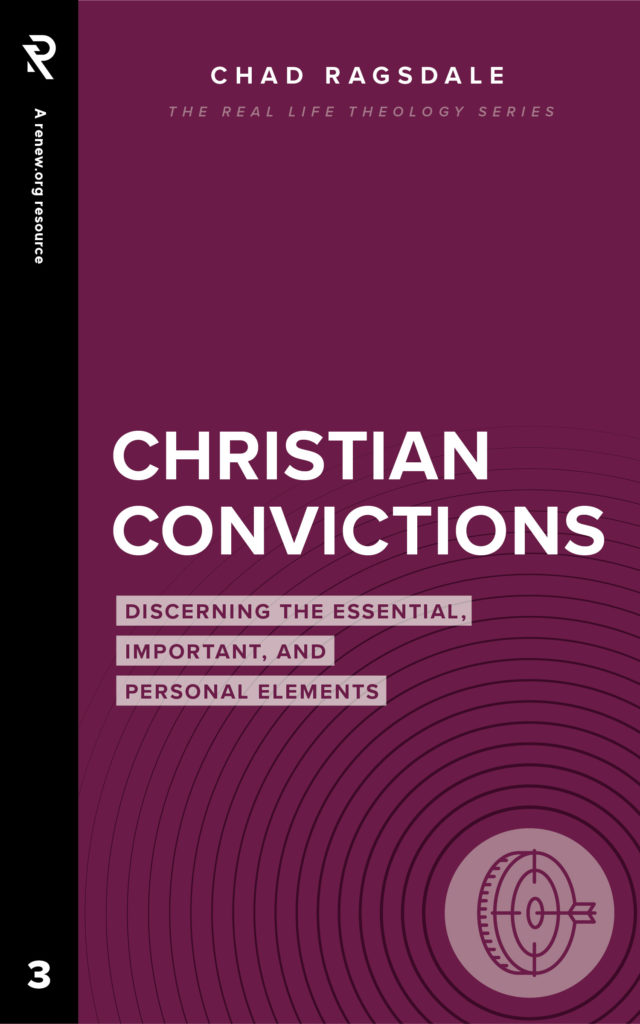
Who Was Caleb in the Bible? Spy, Soldier, and Settler
Who was Caleb in the Bible? Caleb is best known as one of the 12 spies sent by Moses on a reconnaissance tour of the land of Canaan. The reason we know Caleb’s name (and not the others such as Igal, Palti, or Sethur) is that Caleb, along with Joshua, dissented from the other ten when the majority called for aborting the mission because the land was impossible to conquer.
Alone of their generation, Joshua and Caleb outlasted the rest who wandered and died in the wilderness. When it came time at last to enter the promised land, Caleb, by now an old man, still had courage and strength to fight and settle the land.
Caleb’s story in the Bible has three episodes, as a spy, a soldier, and a settler.
A Spy.
After the Exodus, Caleb was one of twelve chosen by Moses to explore the land of Canaan before the Israelites were supposed to enter. The plan got derailed when ten of the explorers said it just wasn’t going to happen. Yes, the land had agricultural abundance, but the inhabitants and their armies were unassailable, and their cities too fortified.
Forty-year-old Caleb silenced the pessimism: “We should go up and take possession of the land, for we can certainly do it” (Num. 13:30). In his dissent, he was joined by Moses’ aid Joshua, another of the twelve. When the community let the other spies lather them into a panic, Joshua and Caleb tore their clothes in lament and together implored the people,
“The land we passed through and explored is exceedingly good. If the LORD is pleased with us, he will lead us into that land, a land flowing with milk and honey, and will give it to us. Only do not rebel against the LORD. And do not be afraid of the people of the land, because we will devour them. Their protection is gone, but the LORD is with us. Do not be afraid of them.” (Num. 14:7b-10, NIV)
Who was Caleb in the Bible? “Their protection is gone, but the LORD is with us. Do not be afraid of them.”
But the community’s molten fear had cooled and calcified into hardness of heart, to where the assembly decided to stone Moses, Aaron, Joshua, and Caleb and return to Egypt. God’s glory showed up, silenced everybody, and he pronounced that the unbelieving generation would perish in the wilderness over the next generation, while Caleb and Joshua alone would survive and enter the land.
A Soldier.
After the previous generation died in the desert, it came time for the Israelites to enter the land under the leadership of Joshua. One of Joshua’s tasks was to assign land to the tribes. After allotting land on the east of the Jordan River to Ephraim, Dan, and half of Manasseh, it was time to allot land west of the Jordan. By now, Caleb was an old man, 85 years old, yet he convinced Joshua that he was as able and eager as ever to conquer the land God had promised.
His explanation to Joshua shows his crazy levels of resolve:
“You know what the LORD said to Moses the man of God at Kadesh Barnea about you and me. I was forty years old when Moses the servant of the LORD sent me from Kadesh Barnea to explore the land. And I brought him back a report according to my convictions, but my fellow Israelites who went up with me made the hearts of the people melt in fear. I, however, followed the LORD my God wholeheartedly. So on that day Moses swore to me, ‘The land on which your feet have walked will be your inheritance and that of your children forever, because you have followed the LORD my God wholeheartedly.’ Now then, just as the LORD promised, he has kept me alive for forty-five years since the time he said this to Moses, while Israel moved about in the wilderness. So here I am today, eighty-five years old! I am still as strong today as the day Moses sent me out; I’m just as vigorous to go out to battle now as I was then. Now give me this hill country that the LORD promised me that day. You yourself heard then that the Anakites were there and their cities were large and fortified, but, the LORD helping me, I will drive them out just as he said.” (Josh. 14:6-15, NIV)
Who was Caleb in the Bible? “Now give me this hill country that the LORD promised me that day.”
Thus, Caleb claimed the hill country of Hebron in the south. This meant having to drive out the descendants of Anak, who were a tall, “long-necked” people, likely the chief reason for the Israelites’ trepidation to enter a generation before. Caleb’s clan succeeded in driving out the “three sons of Anak,” the Anakim clans of Ahiman, Sheshai, and Talmai (Num. 13:22).
A Settler.
Thus, Caleb settled the hill country around Hebron. The actual city of Hebron went on to become a Levitical “city of refuge,” but “the fields and villages around the city [were] given to Caleb son of Jephunneh as his possession” (Josh: 21:12, NIV). Caleb also set his sights further southwest to a city called Kiriath Sepher. To incentivize its capture, Caleb promised his daughter Aksah in marriage. His nephew Othniel, son of his brother, was successful. Caleb gave his daughter and new son-in-law land along with springs of water (Josh. 15:18-19).
Who was Caleb in the Bible? “Caleb settled the hill country around Hebron.”
By the reign of the first king, Saul, Caleb’s descendants are still known in the Hebron area. We meet a wealthy but brash, drunken, and foolish landowner named Nabal who provokes David and almost pays for it with his life. He lives in south of Hebron in a town called Maon, and he is known as a “Calebite.” The reason his story is told is that, after he dies (from heart failure when he realizes how close he had come to being killed by David), David marries his widow Abigail.
Although that’s the basic story of Caleb in the Bible, Caleb connects us to three important additional themes in the Old Testament:
Theme: Judah
When Moses sent 12 men to explore Canaan, he picked one leader from each of the twelve tribes of Israel. Caleb, son of Jephunneh, was the representative chosen from the tribe of Judah. Judah the great grandson of Abraham had some noble moments but was no saint (see Genesis 38 for the time he unknowingly impregnated his daughter-in-law taking her to be a prostitute). But the tribe which came from Judah was destined to become the tribe of Israel’s line of kings (Gen. 49:10).
Who was Caleb in the Bible? “Caleb, son of Jephunneh, was the representative chosen from the tribe of Judah.”
Although the nation of Israel eventually split and there were two rival lines of kings, the one the prophets kept their eye on was the southern line, starting with David and climaxing in the Messiah. This is why the Messiah was called in Revelation 5:5 the “Lion of the tribe of Judah, the root of David.” When the North split off from the South (during the reign of David’s grandson Rehoboam), the South became known as “Judah” (e.g., Is. 1:1), with the entire southern region eventually becoming known as “Judea” (e.g., Matt. 2:1).
Theme: Hebron
The city and area Caleb claimed is historically significant for the Jewish people. Hebron was a formative site for Abraham, Isaac, and Jacob. It was in Hebron that Abram’s name was changed to Abraham, where three angels came to him and Sarah and promised them a son, and where Abraham purchased a cave (Machpelah) where Abraham, Isaac, Jacob and their wives (except for Rachel) were all buried. Samson carried the “gate of Gaza” to a hill facing Hebron (Judges 16:3). It was in Hebron that David was publicly anointed king and where he reigned until capturing Jerusalem for his capital.
Theme: Judges
Caleb forms a fascinating bridge from the books of Moses all the way to Judges, through his son-in-law and nephew Othniel. Caleb comes on the scene as one of Moses’ spies in Numbers 13, he makes a couple appearances in the book of Joshua, and then, in the first chapter of Judges, the first judge to lead Israel is none other than Othniel:
“The Israelites did evil in the eyes of the LORD; they forgot the LORD their God and served the Baals and the Asherahs. The anger of the LORD burned against Israel so that he sold them into the hands of Cushan-Rishathaim king of Aram Naharaim, to whom the Israelites were subject for eight years. But when they cried out to the LORD, he raised up for them a deliverer, Othniel son of Kenaz, Caleb’s younger brother, who saved them. The Spirit of the LORD came on him, so that he became Israel’s judge and went to war. The LORD gave Cushan-Rishathaim king of Aram into the hands of Othniel, who overpowered him. So the land had peace for forty years, until Othniel son of Kenaz died.” (Judges 3:7-11, NIV)
Who was Caleb in the Bible? “When they cried out to the LORD, he raised up for them a deliverer, Othniel son of Kenaz, Caleb’s younger brother, who saved them.”
Caleb’s legacy of contagious confidence continued in the bold leadership of his son-in-law.
When Dogged Is Godly
Joshua’s name means “the Lord is my salvation.” David’s name means “beloved.” Abraham means “father of many.” By contrast, Caleb’s name likely comes from the word for “dog.” Caleb certainly was dogged, as persistent and tenacious as a dog after a bone. He wasn’t back and forth, half-believing and half-doubting God’s promises.
As God said, “My servant Caleb has a different spirit and follows me wholeheartedly” (Num. 14:24, NIV). He and Joshua “followed the Lord wholeheartedly” (Num. 32:12). Why were he and his descendants given “the land he set his feet on?” It’s because “he followed the Lord wholeheartedly” (Deut. 1:36, NIV). As Joshua 14:14 explains, “So Hebron has belonged to Caleb son of Jephunneh the Kenizzite ever since, because he followed the Lord, the God of Israel, wholeheartedly” (NIV).
Who was Caleb in the Bible? As God said, “My servant Caleb has a different spirit and follows me wholeheartedly.”
Caleb’s courage wasn’t a matter of brash boasts and chest thumping, as his descendant Nabal displayed. For Caleb, it was a dogged persistence rooted in faith in God’s promise. And guess what? He got what God promised. Decades of wholehearted, tenacious going after what God had promised made for an 85-year-old with all the confidence of “a four-year-old in a Batman t-shirt.” Faith in stuff anything less than God makes us old and weary. But faith in God keeps us young at heart, as we keep eyes wide open to God-sized possibilities and what part we might play.









